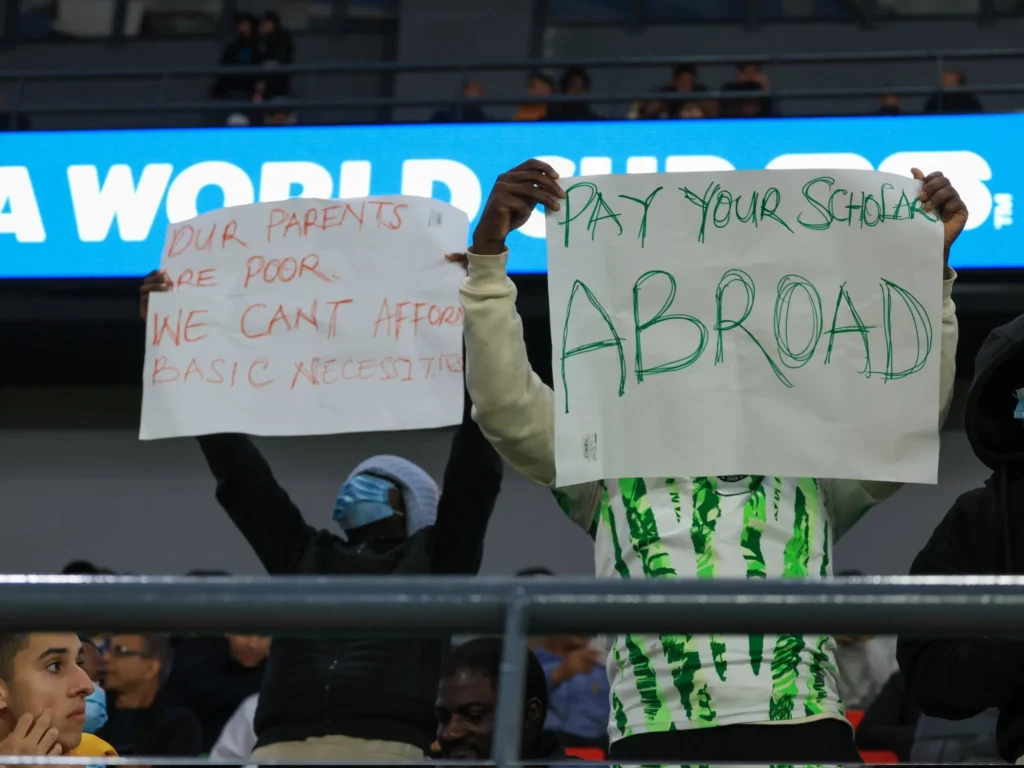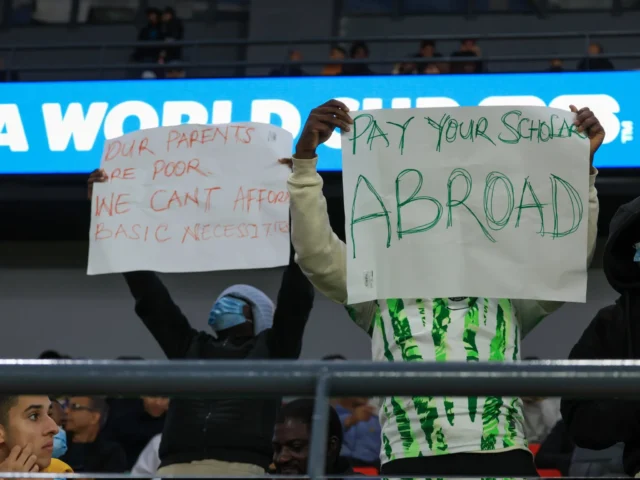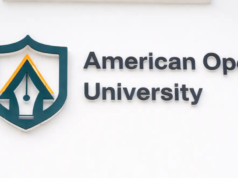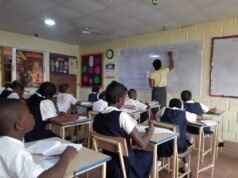A group of Nigerian students on the Bilateral Education Agreement (BEA) scholarship has publicly protested against the Federal Government over delayed and unpaid monthly stipends. According to the Union of Nigerian BEA Scholars, the unpaid allowances date back to earlier months and stretch into the present, creating a severe burden on their welfare overseas.
Many of these students study in countries such as China, Russia, Morocco, Algeria, and Hungary. Their outrage is not only about missing monthly payments but also cuts to the amounts they were originally promised. Some claim the government owes each of them as much as US$6,720 for 2023 and 2024, in addition to arrears from 2025.

The Realities Behind the Protest
In a heartfelt statement shared on social media, the union rejected assertions by the Ministry of Education that all outstanding payments had been settled. They argue that promises on “full accommodation” and “monthly stipends” from host countries are misleading and often untrue. For example, some students in Morocco report no government-provided housing, while others in Algeria are surviving on as little as US$70 every four months—hardly what qualifies as a livable stipend.
These financial struggles have taken a real toll: eviction scares, inability to pay for basic utilities, and mounting stress on their mental well-being. In some cases, scholars have had to rely on loans from family or community support just to survive, while others have been forced into exploitative labor, working long hours abroad just to stay afloat.
Government’s Response and Explanation
The Ministry of Education, through its spokesperson, Boriowo Folasade, has acknowledged the situation but attributes the shortfall largely to foreign-exchange volatility. According to their statement, all supplementary allowances have now been paid up to December 2024, as reported by The Sun.
To address the gap, they say a formal request for additional funding has been submitted. Provisions for the BEA programme are now included in the Education Ministry’s 2024 Capital Budget. With the extension of that budget, disbursements are reportedly expected to start under the 2025 Capital Budget once implementation begins.

What This Says About the Future of the BEA Programme
Beyond the immediate protests, there’s a growing debate over the sustainability and direction of the BEA scholarship scheme itself. Critics argue that it has become a financial drain, especially as allowances grow more difficult for the government to maintain amid economic pressures.
In fact, in April 2025, the Education Minister, Dr. Tunji Alausa, announced that the BEA scholarship programme would be suspended. According to him, redirecting funds from BEA would allow more students to benefit from domestic scholarship initiatives that reach a larger pool of Nigerians.
While no new BEA students will be admitted from 2025 onwards, the minister assured that current beneficiaries will be allowed to complete their programmes abroad.
What’s at Stake
- Scholar Welfare: Many of these students are left in precarious living situations — bouncing between low stipends, rent arrears, and poor living conditions.
- Accountability: There’s growing pressure on the Federal Government to improve transparency, especially around the disbursement of funds, budgeting, and long-term planning.
- Policy Shift: The proposed suspension of BEA suggests a pivot: away from sending students abroad, and toward building capacity at home. But the abrupt nature of this shift has left many beneficiaries anxious about their future.

Conclusion
The protest by Nigerian BEA scholars abroad isn’t just about unpaid money — it’s a cry for dignity and survival. These students, often far from home, are demanding what was promised: financial support to focus on their academics, not on scrambling for basic necessities. The government, for its part, is promising corrective action but has yet to fully convince critics that the new funding plan will plug all the loopholes. Whether this chapter leads to reform or further frustration remains to be seen — but for now, the voices of these scholars are loud, clear, and deeply human.
Join Our Social Media Channels:
WhatsApp: NaijaEyes
Facebook: NaijaEyes
Twitter: NaijaEyes
Instagram: NaijaEyes
TikTok: NaijaEyes
READ THE LATEST EDUCATION NEWS





